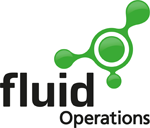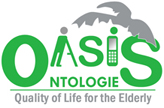THESEUS Symposium
Introduction
This symposium aims at proliferating the understanding of semantics, especially its usage within enterprises. On the one hand, speakers from industry show applications of semantics within various projects relevant within different application areas ranging from environmental information portals to automation and mechanical engineering. On the other hand, technologies developed within the Core technology Cluster of the THESEUS programme and now ready for usage in different applications are presented and demonstrated. These tools cover technologies like semantic search, reasoning, mapping of ontologies, disambiguation of entities and managing changes within knowledge bases. Within a panel discussion aspects like funding, strategies to bring semantics into real-world applications and future research with respect to future applications of semantics are discussed.
Bringing together researchers and representatives from industry is a special focus of this workshop. Its co-location with the ISWC (International Semantic Web Conference) and the invitation of a keynote speaker like Mark Greaves as well as having speakers from industry serves as a basis to foster synergies between both groups, which can then culminate in cooperative European research projects in the field of Future Internet as shown by keynote speaker Bernard Barani.
Registration
A registration for the event is required, but there will be no attendance fee. Find more information on how to register here.
Venue
Gustav-Stresemann-Institut e.V.
Langer Grabenweg 68
D-53175 Bonn-Bad Godesberg
www.gsi-bonn.de
Organization
General Chair
Prof. Rudi Studer, FZI Forschungszentrum Informatik Karlsruhe, Germany
Organization
PD Dr.-Ing. Catherina Burghart, FZI Forschungszentrum Informatik Karlsruhe, Germany
Program
Tentative
Monday, October 24 | |
10:00 - 10:15 | Rudi Studer: Introduction |
10:15 – 11:15 | Keynote: Mark Greaves, Vulcan: Converging Semantic Technologies |
11:15 – 11:45 | Jörn Lehmann (VDMA): VDMA-E-Market |
11:45– 12:15 | Bernd Stieger (ABB): Aletheia – Semantic Technologies in Industrial Service |
12:15 – 13:00 | Lunch |
13:00 – 13:30 | Keynote: Bernard Barani (EU): Future Internet |
13:30 – 14:00 | Hans-Peter Schnurr (ontoprise) |
14:00 – 14:30 | Steffen Lamparter (Siemens AG): Reactive Manufacturing Systems: Reasoning for Coordination and Control |
14:30 – 14:45 | Coffee Break |
14:45 – 15:15 | Andreas Abecker (disy): Semantics for Geographic Information Science and Environmental Informatics |
15:15 – 15:45 | Ulrich Bügel (Fraunhofer IOSB): Semantic Search in Environmental Systems |
15:45 – 16:30 | Catherina Burghart (FZI): Ontology Management Tools developed in THESEUS |
16:30 – 17:15 | Panel Discussion |
17:15 – 19:00 | Demos and Get-Together |
Abstracts of Keynotes
Converging Semantic Technologies
Mark Greaves, Vulcan
Researchers and public-sector organizations have been successfully pioneering semantic technology for years. By now, the initial standards are in place (and we are finding their limitations); sophisticated tools are available (but they are immature and still require specialists); and traditionally forward-leaning organizations like universities and corporate labs have started to use the techniques in significant applications. More interestingly, businesses are starting to realize how investing in targeted semantic technologies can result in powerful applications that collect and exploit data across different disciplines. There are several competing commercial visions and use cases for semantics, from corporate data integration to SOA governance to web service planning to ontology standardization. This talk will lay out my perspective on how current semantic technology intersects with commercial requirements. I will illustrate certain advantages that semantic technology can provide in various verticals, and describe some of the opportunities that I see around semantic technology.
The Future Internet, the engine for innovation
Bernard Barani, EU
Originally conceived with limited functionalities and to interconnect computers, the Internet has radically evolved to support myriads of application and services. Today, the Internet has become an essential ingredient of modern economies and a vital tool to support public policies and societies. In the near future, we may also expect the advent of novel classes of applications on the Internet, such as those supported by Machine to Machine communications and sensor networks, thus fueling the emergence of an Internet of Things. The Internet is consequently at the crossroad of multiple policy issues, as identified under the Digital Agenda for Europe initiative, launched by Commissioner Neelie Kroes a year ago. The presentation will highlight the status of Internet policy development under the Digital Agenda with a focus on innovation policy.



















